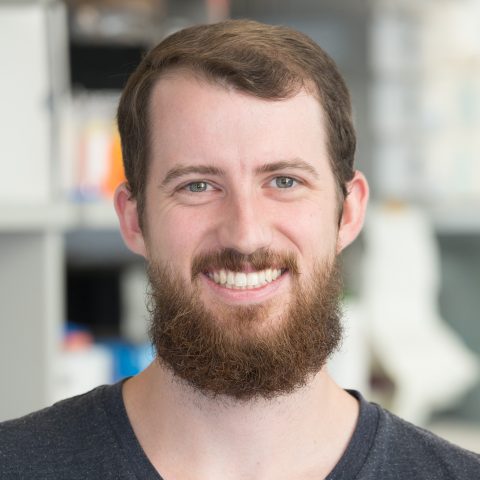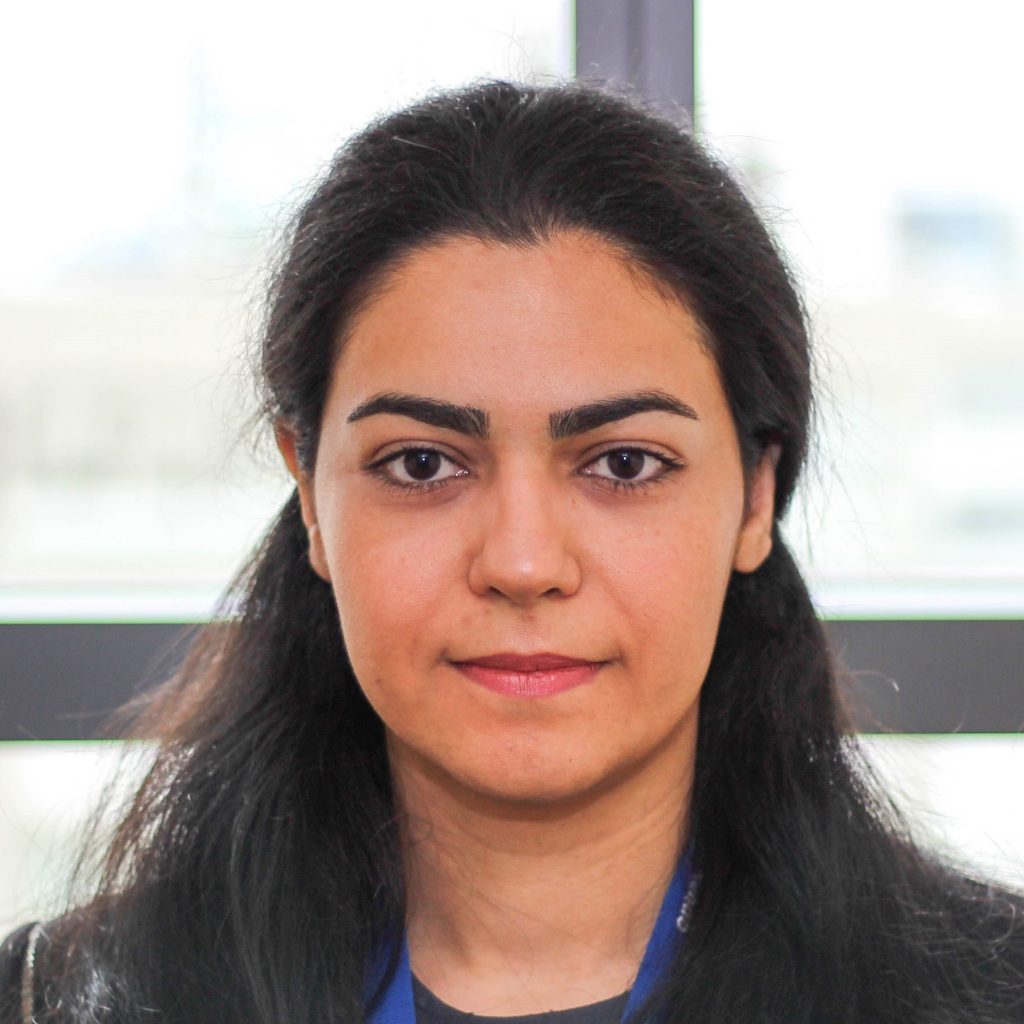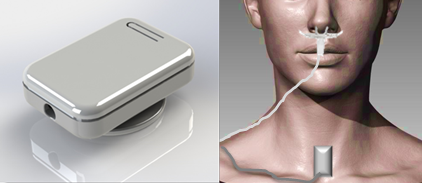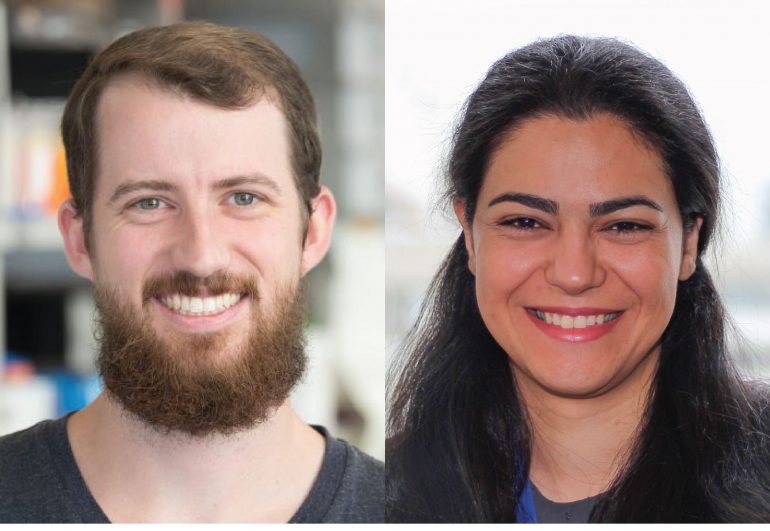Benjamin Kingston and Dr. Nasim Montazeri are two of the IBBME recipients of the 2019 Royal Bank of Canada (RBC) Post-Doctoral & Graduate Fellowships. This award was a result of an academic-industry collaboration between Borealis AI, RBC, and Entrepreneurship Office at the University of Toronto. Valued at $50,000, this prize was awarded to fund Artificial Intelligence (AI) related research that has the potential to be translated into a commercial product. Out of the 7 total award recipients this year, 2 came from IBBME.

Benjamin Kingston is a 3rd year PhD candidate in Dr. Warren Chan’s lab located at the Donnelly Centre. Benjamin’s research is focused on using AI to interpret and quantify structural differences in human tumour biopsies. This structural interpretation can provide crucial information on how doctors diagnose and treat cancer in humans.
“We have developed a 3D imaging technology to visualize tumour biopsies from patient samples,” Benjamin said, “I can then use AI algorithms to extract information from these images to create a personalized structural profile of the patient’s tumour.”
One defining feature of the tumour is its blood vessels, which provide nutrients and blood supply to the tumour and are used to deliver drugs. These blood vessels can be extremely chaotic, and therefore human interpretation of these tumours can be highly subjective, potentially leading to the wrongful diagnosis. “If we can use AI to analyze what kind of blood vessel allow therapeutics to reach the cancer cells easily, we can predict how the patient will react to chemotherapeutics before subjecting them to treatments that do not work. It’s a personalized approach to medicine.”
Benjamin’s vision is to eventually create a personalized cancer prognosis algorithm by curating data from thousands of patient tumour samples. “We have access to large banks of tumour biopsy samples collected over the past 20 years. Since the results from these tumour samples are known, we can hopefully correlate patient outcome to specific features within the tumour.” said Benjamin.

AI for Detecting Sleep Apnea
Dr. Nasim Montazeri is a post-doctoral fellow working in Dr. Azadeh Yadollahi’s lab located at the Toronto Rehabilitation Institute. Nasim’s project is focused on using AI and machine learning to translate respiratory related sounds and airflow of patients with sleep apnea into useful diagnostic assessment. This could eventually help physicians in providing personalized treatment regiment for these patients: let it be surgery, oral drugs, or oral appliances.
In sleep apnea, pharynx (throat) collapse intermittently during sleep that blocks the flow of air into the lungs. The collapse can occur in various sites of pharynx. Unfortunately, there is no non-invasive and cost-effective method to identify the exact site of the blockage during sleep. Hence regardless of the site of blockage, physicians oftentimes prescribe the common gold standard treatment, which is continuous positive air pressure (CPAP). CPAP is inconvenient with adherence rate less than 15%.
In her proposal, Nasim is developing a device that pinpoint the location of the blockage in the pharynx using convenient measurements during sleep. “We have already developed a device for recording respiratory sounds over the neck” Nasim said, “We can use machine learning and mathematical models to assess the pharynx during sleep and see where the blockage is dominantly happening.”
A huge advantage of this method is that the data collected are specific to the patient. “If the physicians understand which part of the pharynx has problems, they can customize the treatment.” said Nasim.



